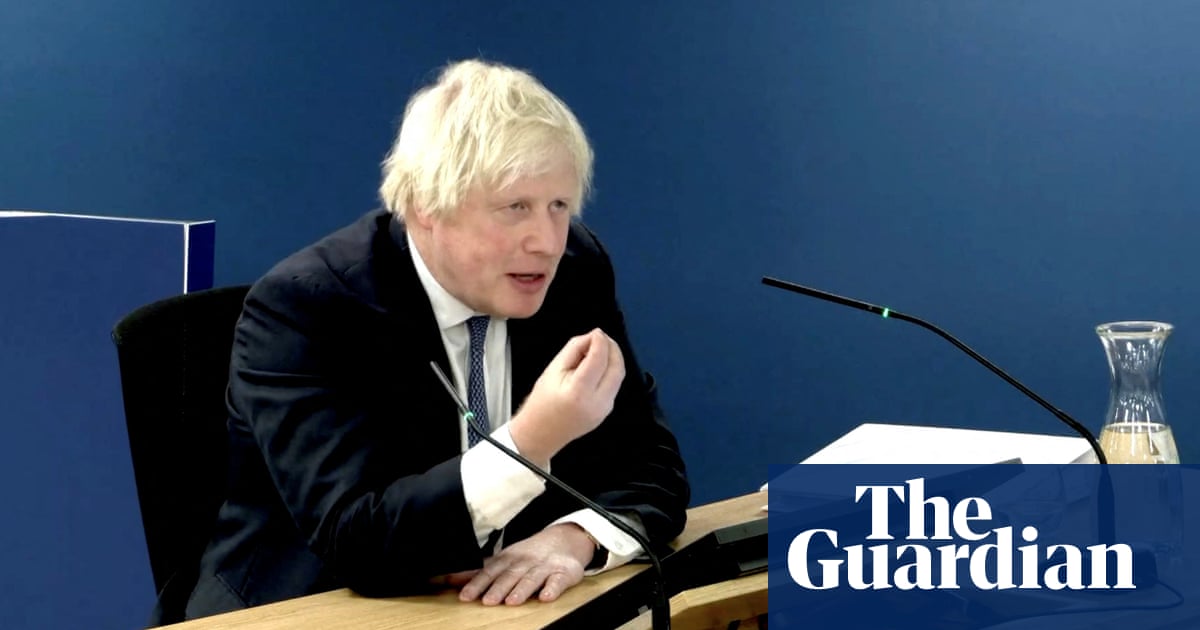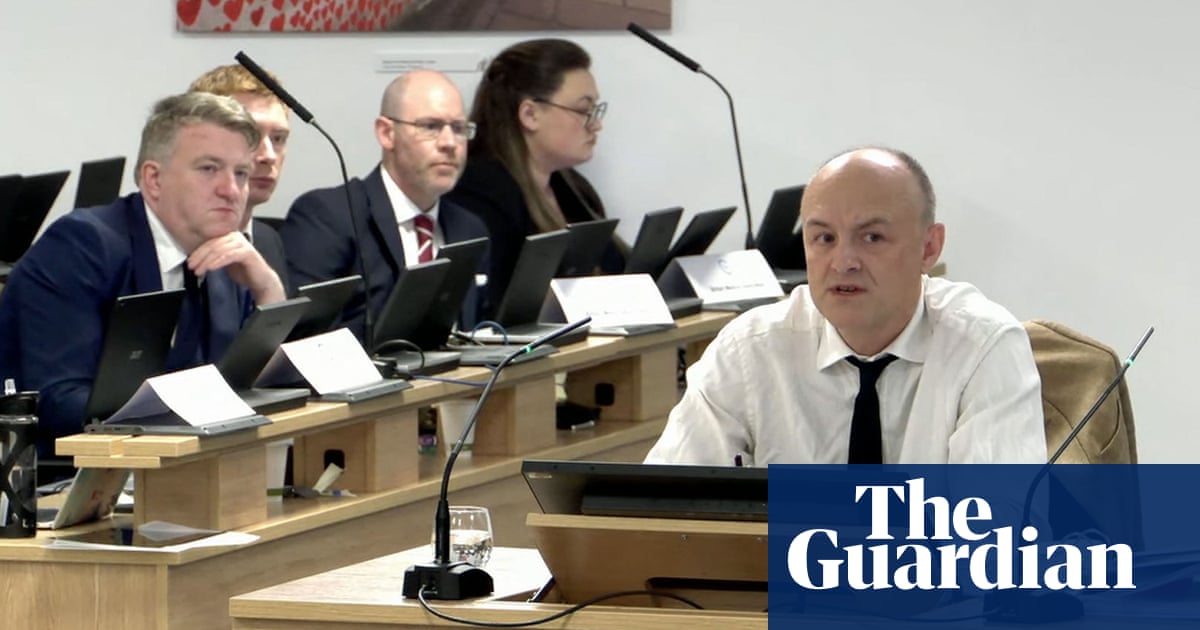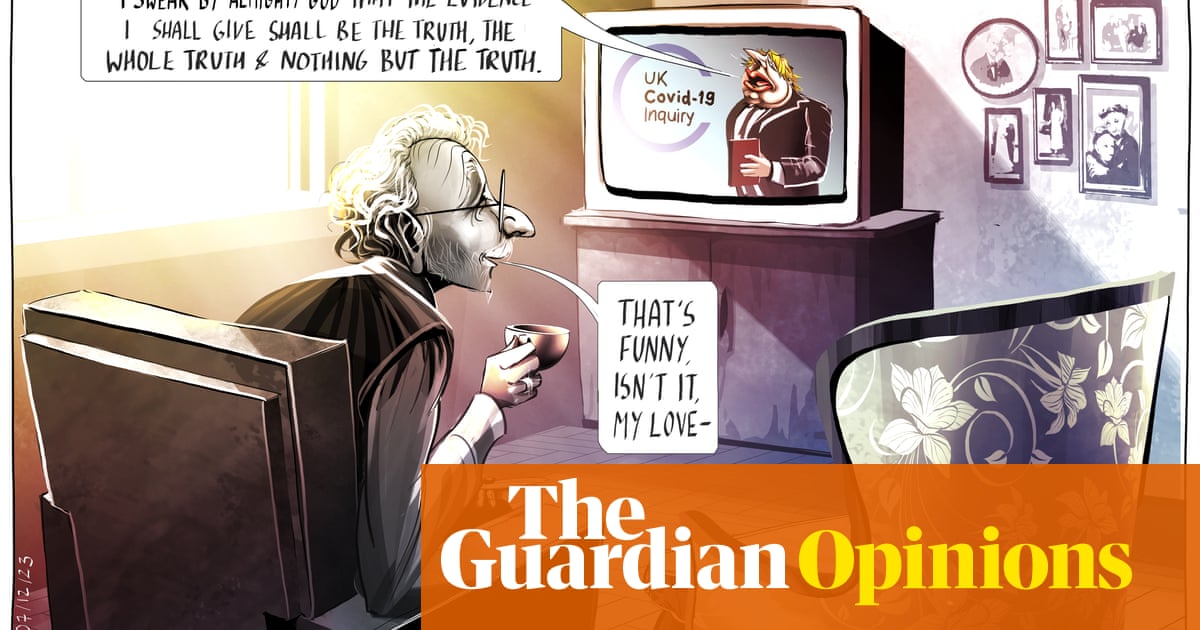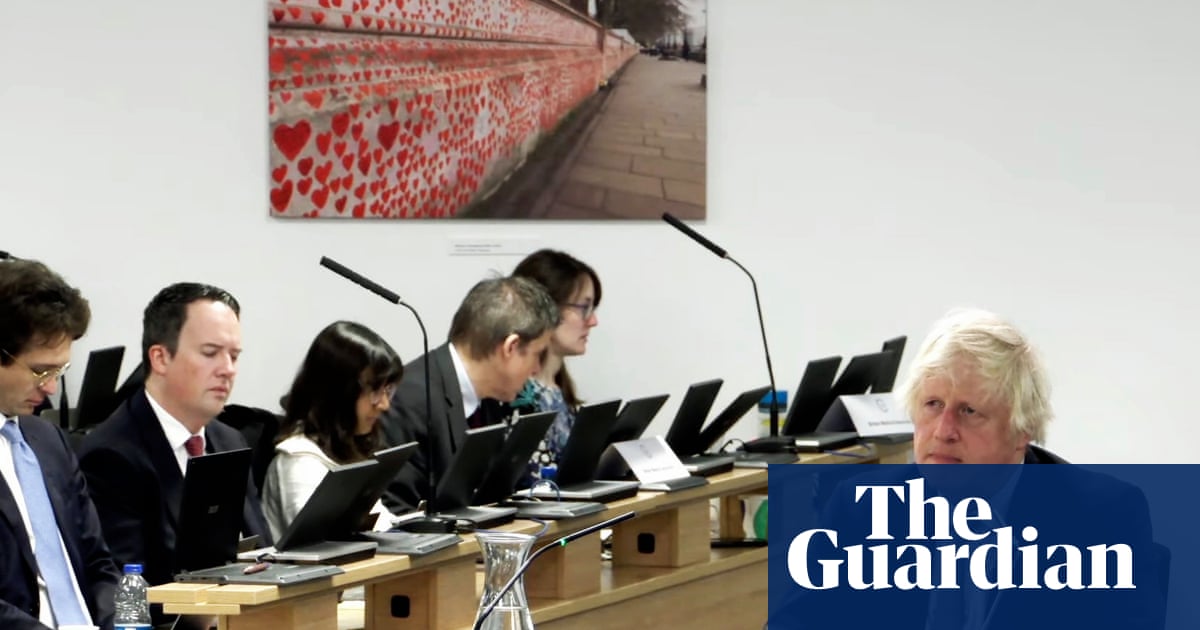
The Covid inquiry at times feels like watching a trial in which the prosecution and defence are conducted simultaneously – while it is theoretically split into area-specific modules, the subject matter jumps around, with sometimes dramatic evidence presented at unexpected times. This week’s hearings have been no exception. These are the main things we learned.
A top civil servant found Boris Johnson’s No 10 exasperating
Arguably the key witness of the week was Mark Sedwill, who was the cabinet secretary – the UK’s top civil servant – until September 2020. Lord Sedwill was generally measured and cautious in his long testimony on Wednesday but did not dispute the idea of Johnson being badly suited to handle the Covid crisis, liable to veer between opinions and unable to coherently manage a team.
Asked if he agreed with such assessments by others earlier in the inquiry, Sedwill said: “I recognise them but I wouldn’t express them that way myself.” He described his role as trying to create a system around Johnson to “force a decision”, one involving ministers as well as advisers. This was, he said, “exhausting” for those around the prime minister.
The same official did not trust Matt Hancock
Again, this arguably counts as confirmation rather than news, but it is very striking that Sedwill openly said he did not trust the health secretary in post at the time.
He agreed with testimony about Hancock being seen as not routinely honest, adding that he would regularly double-check things said by the minister with others “to make sure he wasn’t over-promising”.
One of the most consistent themes of the inquiry so far has been people who worked with Hancock being very rude about him. In Sedwill’s evidence it emerged he had urged Johnson to sack his health secretary to “save lives and protect the NHS”, a grimly humorous play on a Covid-era health slogan.
In one WhatsApp message from Sedwill shown to the hearing he says: “Hancock so far up BJ’s [Boris Johnson’s] arse his ankles are brown.”
The current cabinet secretary was even more damning
Perhaps the standout evidence was extracts of messages between Sedwill and Simon Case, the man who succeeded him as cabinet secretary and is still in the job, flashed up on to the inquiry live stream and eagerly screen-shotted by watching journalists.
The first and most inflammatory tranche of messages emerged on Tuesday, during evidence by Edward Udny-Lister, Johnson’s chief of staff during the pandemic, with the two civil servants describing those inside No 10 at the time as “poisonous”, “mad” and unfit to govern.
“I’ve never seen a bunch of people less well-equipped to run a country,” Case wrote to Sedwill in July 2020, when Case had the job of lead civil servant for Downing Street. “These people are so mad. Not poisonous towards me (yet), but they are just madly self-defeating.”
In an eye-opening vignette, Case said he had told Johnson that replacing another senior No 10 official had proved difficult because “lots of the top-drawer people I had asked had refused to come because of the toxic reputation of his operation”.
Another exchange between the pair, shown during Sedwill’s evidence, showed Case describing Johnson and the people around him as “basically feral”, to which Sedwill said in reply: “I have the bite marks.”
Dominic Cummings was blamed (again)
During his testimony, Lister did not notably dispute the description of working conditions inside No 10 as set out by Case and Sedwill, but placed the responsibility on Cummings, Johnson’s then chief adviser.
“He was not an easy man to deal with and that was a tension,” Lister said of Cummings, saying Johnson should have taken action. “There was a personality clash that was constantly going on, and there was an atmosphere.”
Asked how well he got on with Cummings, Lister said: “We worked together. We had desks facing each other. I can’t say there was any close relationship.”
Officials thought Johnson was too slow on a second lockdown
As the summer of 2020 moved into autumn and infection rates rose, people around Johnson were increasingly exasperated at his unwillingness to impose a brief “circuit breaker” lockdown.
Messages in September and October between Ben Warner, a data scientist brought into No 10 by Cummings, and Lee Cain, Downing Street’s then director of communications, showed they feared Johnson was repeating the over-slow imposition of the first lockdown.
“I feel like we have accidentally invented a time machine,” Warner wrote to Cain. “We are so fucked. Why are we not acting in London and urban areas now? Same errors as March.”
Rishi Sunak’s actions also concerned officials
The inquiry heard that the then chancellor introduced his flagship “eat out to help out” hospitality scheme in summer 2020 without consulting the government’s Covid taskforce, leaving officials “blindsided” by the Treasury.
Other evidence, from the diary of Sir Patrick Vallance, at the time the government’s chief scientific adviser, said that in autumn 2020 Sunak was making “increasingly specific and spurious arguments” against new restrictions on hospitality businesses, and was influencing Johnson on this.
In October, Vallance complained that Johnson “owns the reality for a day, and then is buffeted by a discussion with CX [chancellor of the exchequer]”. Around the same time, another extract from Vallance’s diary referred to the Treasury as “the pro-death squad” given the eagerness to lift restrictions.
Johnson did say ‘let the bodies pile high’
When it was first reported more than two years ago that Johnson remarked in autumn 2020 that he would rather “let the bodies pile high” than impose a new lockdown, his Downing Street spokesperson and ministers including Michael Gove said this was not true.
However, the witness statement of Lister – a longtime Johnson aide, loyalist and friend – confirmed it had been said. Lister’s statement also confirmed that early in the pandemic Johnson suggested he be injected with Covid on TV to prove it was not harmful.












